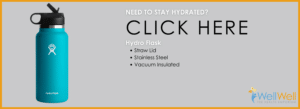The Skinny:
Americans are under a high blood pressure assault. Otherwise known as hypertension, the Centers for Disease Control and Prevention estimates that almost half of American adults suffer from high blood pressure and a startling number of these individuals don’t have it under control. The threat is nothing to overlook. In fact, it can lead to hardening of the arteries, kidney disease, stroke and heart failure. Sadly, hypertension helps take almost 700,000 lives annually in the U.S. Medication certainly helps, but there are other natural ways for people to lower their blood pressure and reduce their risks. Read on.
The Slate:
Watching Your Blood Pressure
Just checking your blood pressure regularly won’t reduce it. But the American Heart Association notes it is an essential way to stay on top of any potential problems. A healthy blood pressure reading is below 120 /80 mm Hg (millimeters of mercury). The first number (systolic) is the most important one, representing arterial pressure during heartbeats. The second number (diastolic) measures resting pressure in arteries between heartbeats. If either or both readings are over 130/80, hypertension exists. Stage 2 hypertension starts when either value exceeds 140/90. Immediate medical attention is needed for a hypertensive crisis If either reading exceeds 180/120.
Watch The Waistline
Being overweight, especially for those with sleep apnea, is a red flag when it comes to high blood pressure. Men with waists measuring over 40 inches (102 centimeters) and women with waists over 35 inches (89 centimeters) are generally at risk for hypertension, though there are variations among ethnic groups. The Mayo Clinic reports that the good news is that weight loss helps. In fact, for each kilogram (about 2.2 pounds) of poundage shed, blood pressure can decrease by 1 millimeter of mercury (mm Hg).
Get Aerobic
Regular aerobic exercise is a great way to battle blood pressure and decrease the chance of both cardiovascular events and mortality. One analysis found that exercise training also reduced hypertensive adults’ blood pressure variability—especially in the important systolic measure and during the daytime when it tends to be highest.
Stop Shaking Salt
Extra sodium (think salt) intake raises blood pressure by increasing the body’s fluid volume. One recent study reported that staying on a low-salt diet for just one week can help. It found that this meal plan lowered blood pressure in three-fourths of a group of more than 200 hypertensive patients, aged 50 to 75 years.
Potassium Helps
Journal of the Academy of Nutrition and Dietetics reports that almost all Americans don’t get enough potassium, while about 90 percent consume too much sodium. That’s a recipe for high blood pressure. Increasing potassium intake can lower blood pressure. It may even undo the effects of too much sodium. It’s recommended that people consume less than 2,300 mg of sodium daily while taking in more than 4,700 mg of potassium.
Eat Healthy
Eating well is always a good idea. However, some diets are particularly important when it comes to tackling high blood pressure. Various reports found that a Mediterranean diet reduced systolic blood pressure by an impressive average of 15.1 mm Hg. The Dietary Approaches to Stop Hypertension Diet, also known as the DASH Diet, resulted in a 11.9 mm Hg reduction. Both diets emphasize whole grains, fruits and vegetables. The Mediterranean diet also includes two or more servings of fish weekly.
Quitting & Limiting
Stopping smoking is a great way to lower blood pressure. Lowering alcohol consumption is another smart idea. The Mayo Clinic notes that sticking to one drink a day, 12 ounces of beer, 5 ounces of wine or 1.5 ounces of 80-proof liquor, for women or two drinks a day for men can lower blood pressure by about 4 mm Hg.
Reduce Stress & Sleep
Not getting enough sleep contributes to stress and increases the risk of high blood pressure, heart disease and other medical conditions. Most adults need 7 to 9 hours of sleep a night. Those with hypertension will especially benefit from stress-reduction and sleep-enhancing techniques.
Tackle Sleep Apnea
Sleep apnea, which is often associated with being overweight, can trigger dangerous surges in blood pressure both during sleep and on waking up. Using a continuous positive airway pressure (CPAP) machine can help, especially for those with drug-resistant hypertension. Appropriate use of CPAP typically lowers blood pressure by 2 or 3 mm Hg, while also reducing the risk of cardiovascular events.
Eyes Up:
What have we missed? Let us know at info@wellwellusa.com.
WellWell editors independently identify services and products of interest. If readers purchase anything through the associated links, WellWell may earn a commission, which goes to support our work. Learn More.













